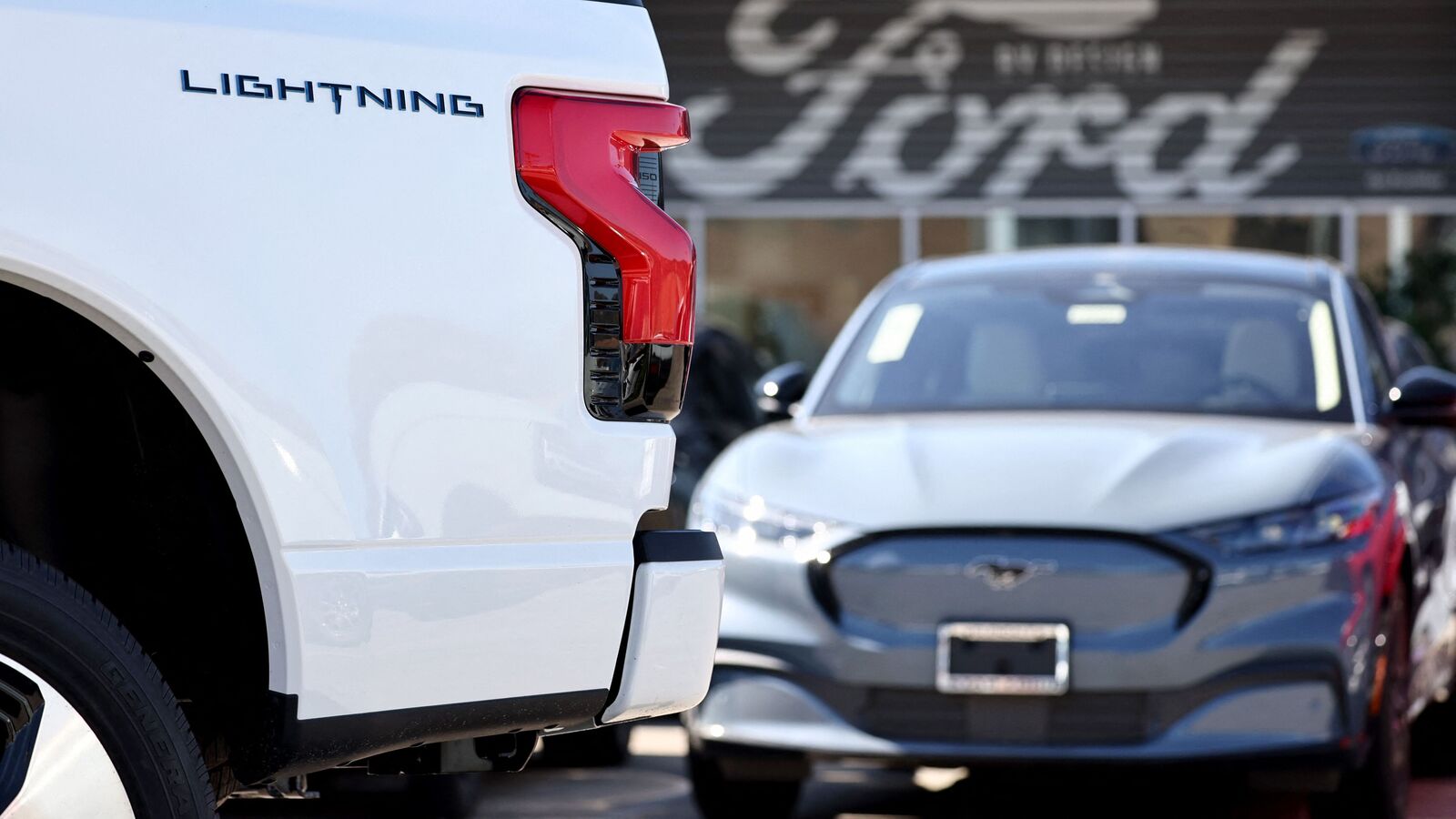The car industry’s push to decarbonise revolves around replacing petrol with batteries. A growing number of customers want both. Buyers who can’t afford a fully electric car or who are concerned about the availability of charging points are turning to plug-in hybrid electric vehicles (PHEVs), sales of which are soaring. But the hybrid journey can be short.
Last year, global sales of battery-only cars (BEVs) were more than double those of PHEVs. But the gap has been closing. PHEV sales rose nearly 50% year-over-year in the first seven months of 2024, compared with just 8% for BEVs, according to Bernstein, a brokerage.
Automakers have been cooling their heels on battery-electric vehicles and warming toward hybrids. This month, Volvo backtracked on its commitment to go all-electric by 2030. It now says battery-electric vehicles and plug-in hybrids will together account for 90% of its sales by the end of the decade. Last month, Ford announced it was abandoning plans to make a large all-electric SUV, opting instead for hybrid power. Hyundai is doubling its hybrid lineup from seven to 14 models. Volkswagen has also pledged to increase investments in hybrids as it reconsiders its plans for battery-electric vehicles.
Consumers are opting for hybrids in part because they are cheap. The large batteries needed to run all-electric vehicles make them much more expensive than gasoline-powered ones. This is a problem when trying to sell to the mass market; most buyers “won’t pay a premium,” says Jim Farley, Ford’s chief. Plug-in hybrids, by contrast, run on much smaller batteries: They typically have a 20-kilowatt-hour unit, about a third the size of those in battery-electric vehicles. As a result, PHEVs are only slightly more expensive than gasoline cars and cost less to run. Although hybrids can typically travel only about 40 miles on their batteries, the option to use gasoline avoids the anxiety that many battery-electric-vehicle drivers feel about running out of charge.
For their part, automakers like hybrids because they are typically as profitable as gasoline cars, unlike battery-electric vehicles, which are mostly loss-making. Smaller batteries mean lower production costs. Hybrids also allow traditional automakers to leverage more of their existing expertise and supply chains.
However, the hybrid trend may prove to be fleeting. In California, the law, adopted by 16 other US states, stipulates that by 2035 only 20% of new vehicles sold by car manufacturers may be plug-in hybrids; the rest must be fully electric. The EU plans to curb this trend even further: it will ban the sale of all cars with petrol engines, including hybrids, from 2035.
By then, hybrids may become less competitive. Battery prices have been falling and will continue to fall as production expands and new chemical compositions are developed. Automakers such as Renault have plans to launch battery-electric vehicle models that cost significantly less than their current offerings, driven by Chinese competition. Charging networks continue to expand.
View full image
Bernstein predicts that PHEVs will capture an increasing share of the car market through 2030, but that sales will plateau after that and eventually decline as BEV sales rise (see chart). Hybrids are “winning now, but BEVs will win at some point,” estimates Patrick Hummel of UBS. Xavier Smith of consultancy AlphaSense believes that carmakers’ current obsession with hybrids will prove short-sighted. Those that lose focus on electrification could soon be left behind.
© 2024, The Economist Newspaper Limited. All rights reserved. From The Economist, published under license. The original content can be found at www.economist.com
Disclaimer:
The information contained in this post is for general information purposes only. We make no representations or warranties of any kind, express or implied, about the completeness, accuracy, reliability, suitability or availability with respect to the website or the information, products, services, or related graphics contained on the post for any purpose.
We respect the intellectual property rights of content creators. If you are the owner of any material featured on our website and have concerns about its use, please contact us. We are committed to addressing any copyright issues promptly and will remove any material within 2 days of receiving a request from the rightful owner.

